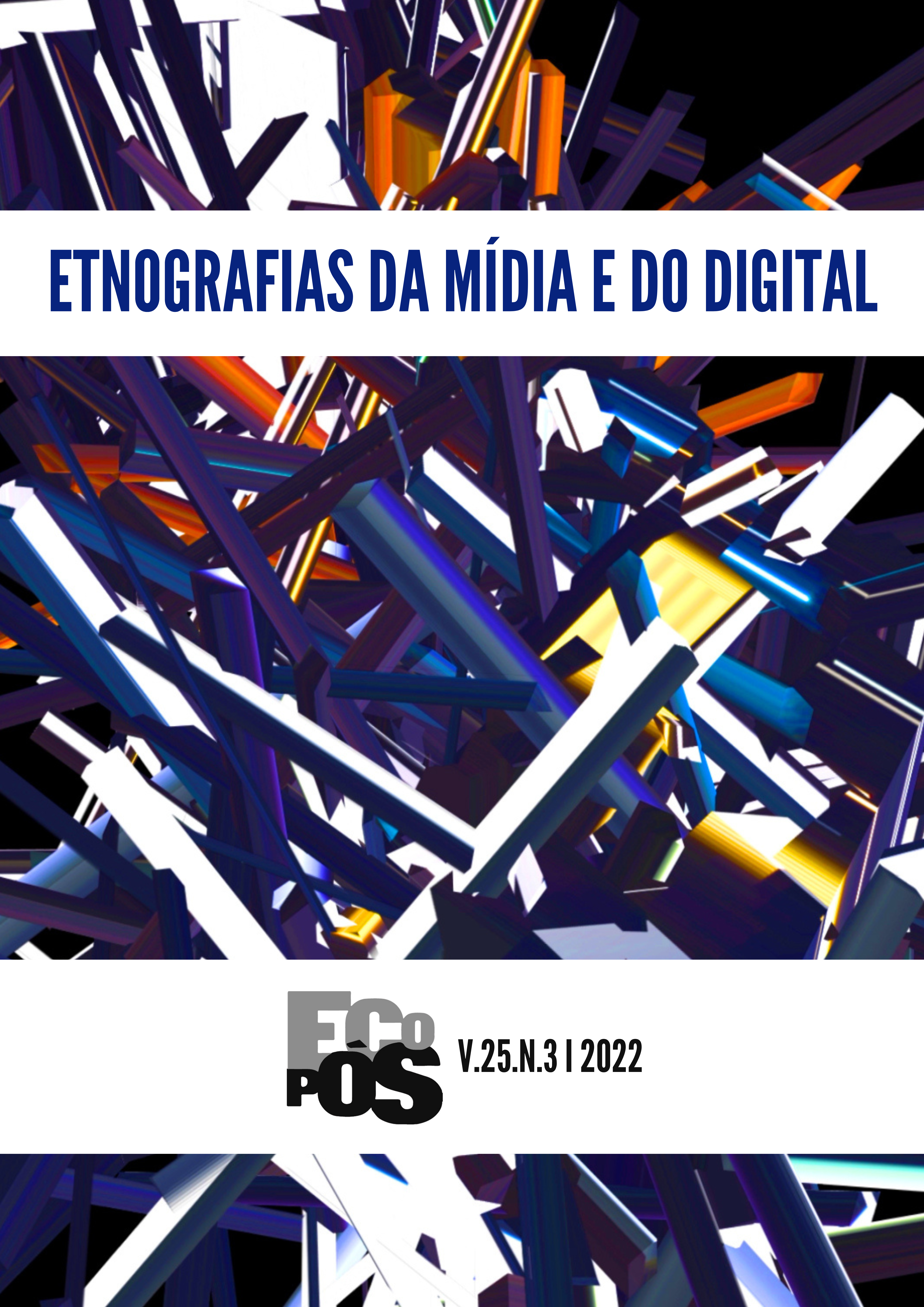MMA and the battle of lives in pandemic times
DOI:
https://doi.org/10.29146/eco-ps.v25i3.27934Keywords:
mixed martial arts, Internet, digital platforms, BrazilAbstract
In this article we analyze the use of digital media by MMA social actors from Southern Brazil, especially on Instagram. We started from ethnographic research that includes participant observation in online and offline environments, interviews with athletes, coaches, fight promoters and entrepreneurs from the fight universe, as well as the analysis of both the use of digital platforms and the operation of the platforms. We describe the different ways in which the applications are used to build the characters of athletes and the importance of the lives as a space of sociability during the COVID-19 pandemic in Brazil.
Downloads
References
AWI, Fellipe. Filho teu não foge à luta: como os lutadores brasileiros transformaram o MMA em um fenômeno mundial. Rio de Janeiro: Editora Intríseca Ltd, 2016.
BOYD, danah & Ellison, Nicole. Social Network Sites: Definition, History and Scholarship. Journal of Computer- Mediated Communication, v.13, n.1, 2007, p. 210 – 230.
CALLEJA, Gordon. In Game: from immersion to incorporation. Cambridge: MIT Press, 2011.
CARDON, Dominique. Le design de la visibilité: Un essai de cartographie du web 2.0. Réseaux, v. 152, n. 6, 2008, p. 93-137.
CASTELLS, Manuel. Communication et pouvoir. Paris : Éd. de la Maison des Sciences de l’Homme, 2003.
CSORDAS, Thomas. Body, meaning, healing. New York: Palgrave Macmillan, 2002.
EVANS, Anthony & GERBASI, Thomas. UFC Ultimate Fighting Championship: Guia Oficial. São Paulo: Panda Books, 2012.
FACHEL LEAL, Ondina. The gauchos: male culture and identity in the pampas. Tese. Doutorado em Antropologia. University of California. Berkeley, 1989.
GIBSON, James. The ecological approach to visual perception. Boston: Houghton Mifflin, 1979.
GLASSEY, Olivier. Repenser la sociologie du numérique à l’aune de notre vie commune avec les robots sociaux. Sociologie et Sociétés, vol.49, n.2, 2017, p. 59–82.
HINE, Christine. Ethnography for the Internet: Embedded, Embodied and Everyday. London: Bloomsbury, 2015.
JARDIM, Juliana Gomes. “It´s time”! MMA feminino, mercado da beleza e cis-heteronormatividade: uma etnografia multissituada com lutadoras brasileiras. Tese. Programa de Pós-Graduação em Ciências Sociais. Universidade Estadual Paulista. 2018.
JENKINS, Henry. Convergence Culture. New York University Press, 2006.
KRISCHKE-LEITÃO, Débora & GOMES, Laura Graziela. Etnografia em ambientes digitais: perambulações, acompanhamentos e imersões. Revista Antropolítica, no.42, 2017, p. 41-65.
MANOVICH, Lev. Instagram and contemporary image. Manovich. Net: New York, 2016.
MCCLEAREN, Jennifer. “We Are All Fighters”: The Transmedia Marketing of Difference in the Ultimate Fighting Championship (UFC). International Journal of Communication, vol.11, 2017, p. 3224–3241.
MILLER, Daniel et al. How the world changed social media. London: University College London Press, 2016.
MILLER, Daniel & HORST, Heather. “The Digital and the Human: A Prospectus for Digital Anthropology”. In MILLER, Daniel & HORST, Heather (org,). Digital Anthropology, Londres: Berg, 2012, p. 3-35.
OLIVEN, Ruben. “The largest popular culture movement in the Western world": intellectuals and Gaúcho Traditionalism in Brazil. American Ethnologist, n.27, 2000, p. 128-146.
O'REILLY, Tim. Web 2.0 compact definiton: trying again. O'Reilly, 10 de dezembro de 2006. Disponível em: <http://radar.oreilly.com/2006/12/web-20-compact-definition-tryi.html>. Acesso em: 1 jan. 2022.
PIAZZESI, Chiara. & LAVOIE-MONGRAIN, Catherine. Selfies de femmes, négociation normative et production de culture visuelle sur Instagram et Facebook. Recherches féministes, vol. 33, n.1, 2020, p. 135–151.
SENFT, Theresa M. Camgirls: Celebrity & Community in the Age of Social Networks. New York: Peter Lang Publishers., 2008.
SIMMEL, Georg. The Sociology of Sociability, American Journal of Sociology, vol. 55, n. 2, 1949, p.254-261.
VAN BOTTENBURG, Maarten & HEILBRON, Johan. De-sportization of fighting contests: The origins and dynamics of no holds barred events and the theory of sportization. International Review for the Sociology of Sport, vol. 41, n.3-4, 2006, p. 259-282.
VAN DIJCK, Josée. The culture of connectivity: A critical history of social media. Oxford : Oxford University Press, 2013.
Downloads
Published
How to Cite
Issue
Section
License
Copyright (c) 2022 Diéssica Shaiene Gaige, Débora Krischke-Leitao

This work is licensed under a Creative Commons Attribution 4.0 International License.
Aos autores pertence o direito exclusivo de utilização ou reprodução.
Você tem o direito de:
- Compartilhar — copie e redistribua o material em qualquer meio ou formato.
- Adaptar — remixar, transformar e construir sobre o material para qualquer filme, mesmo comercial.
O licenciante não pode revogar esses direitos, desde que você respeite os termos da licença.
De acordo com os seguintes termos:
- Atribuição — Você deve dar o devido crédito, fornecer um link para a licença e indicar se essas alterações foram feitas. Você pode fazê-lo de qualquer maneira razoável, mas não de maneira que sugira que o licenciante endosse ou aprove seu uso.
- Sem restrições adicionais — Você não pode aplicar termos legais ou medidas de natureza tecnológica que restrinjam legalmente outros de fazer algo que a licença permite.
Aviso: A licença pode não fornecer todas as permissões necessárias para o uso pretendido. Por exemplo, outros direitos, como publicidade, privacidade ou direitos morais, podem limitar a maneira como você usa o material.











